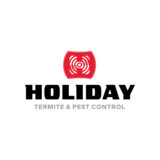PEST PROOFING YOUR HOME
Why do homeowners need to worry about pest proofing their homes?
When it gets colder outside, pests look for a place to live inside. Our homes are the most likely refuge. It is something we experience every year and homeowners need to take steps during the fall to pest proof for the winter months.
Will pest infestations this winter be worse than most winters?
With a cool, moist summer and spring in the Northeast, and extreme moisture in the South from hurricanes, you can expect to see a heavy pest season this winter. Pests love moisture and, after such a wet summer and fall, they’ve been given an opportunity to thrive.
We are already seeing an increase in calls to professional pest control companies about infestations this fall. Mice, squirrels, spiders and insects are already beginning to move in for the winter. Compared to last year, we are already seeing up to a 35% increase in calls to professional pest control companies about these types of infestations.
What types of pests can homeowners expect to see this winter?
This time of year, the house mouse is the most common pest in and around homes as well as spiders, squirrels and small insects. While spiders, for the most part, are not aggressive, many homeowners and children find them frightening. Mice on the other hand can be dangerous as they eat and contaminate our food, chew up woodwork and can create electrical fires by gnawing on wires. Other rodents such as chipmunks, squirrels, raccoons, and opossums can get into open areas seeking food.
What happens to homeowners who do not pest proof their homes for the winter?
Pests are adaptable and will always seek shelter from the cold. Most times the shelter is in our homes and businesses. Homeowners who do not pest proof their homes are taking a real chance. Pests are always drawn to conducive conditions. Unfortunately, the warmth, shelter and food found in our homes are just irresistible to pests, especially in winter months.
Although some homeowners may have higher pest tolerance than others, pests can create major havoc inside a home, ultimately creating a dangerous and potentially costly situation for a homeowner. People who decide against pest proofing for the winter could be unintentionally creating prime conditions for property-damaging pests like termites to surface in the spring.
What are the steps a homeowner needs to take to pest proof their home for the winter?
The National Pest Management Association recommends the following steps to pest proof your home:
- Seal up any cracks and holes on the outside of your home including areas where utilities and pipes enter your home.
- Frequent vacuuming can help to eliminate tiny pests that other pests feed on.
- Make sure vents are screened and gaps around windows and doors are sealed.
- Keep tree branches and shrubbery well trimmed and away from the house.
- Inspect boxes, grocery bags and other packaging thoroughly to curb hitchhiking insects.
- Keep basements, attics, and crawl spaces well ventilated and dry.
- Store garbage in sealed containers and dispose of it regularly.
- Store fire wood at least 20 feet away from the house and five inches off of the ground.
- Repair fascia and soffits and rotted roof shingles; some insects are drawn to deteriorating wood.
- Replace weather-stripping and repair loose mortar around the basement foundation and windows.
- A licensed and qualified pest control professional is your best resource to ensure these steps are completed properly.
Can a homeowner handle those steps themselves or does a professional need to be involved?
Some things can be done by a homeowner, however a professional knows the habits and biology of the pests that come into our homes. This time of year we get a lot of calls because homeowners are frustrated — they’ve tried to keep pests out and can’t figure out where they are living.
What do you do if pests have already gotten into your home?
If you are already seeing signs of pests inside your home – such as rodent droppings – it is always a good idea to call a professional pest control company. They can help you identify where pests are entering your home, what they are feeding on, and how to eliminate the conducive conditions.
